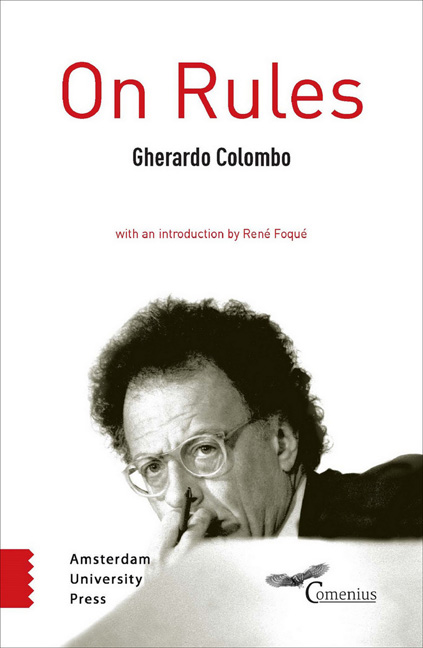Book contents
- Frontmatter
- Introduction: Gherardo Colombo’s Concern for the Democratic State under the Rule of Law: A Work in Progress
- Why?
- 1 An Imaginary Country
- Contents
- Part I The Ambiguities of Justice
- Part II Horizontal Society and Vertical Society
- Part III Towards a Horizontal Society
- Part IV How Do We Get There?
- Conclusion
- Acknowledgments
2 - Law and Justice
Published online by Cambridge University Press: 24 December 2020
- Frontmatter
- Introduction: Gherardo Colombo’s Concern for the Democratic State under the Rule of Law: A Work in Progress
- Why?
- 1 An Imaginary Country
- Contents
- Part I The Ambiguities of Justice
- Part II Horizontal Society and Vertical Society
- Part III Towards a Horizontal Society
- Part IV How Do We Get There?
- Conclusion
- Acknowledgments
Summary
Even if some people think the opposite, rules cannot be done without, because people cannot live together without applying them, even if unwittingly.
A rule is the other side of living together – they are two sides of the same coin. This can be tested empirically: it is impossible to meet unless we follow the same rules for measuring time. We cannot communicate unless we follow shared language rules. Often, if not always, contacts between people have specific rules: sitting at a table, attending a lecture, going to school (just to name a few), all these activities have specific rules.
By the same token, it can be observed that every kind of association, community or faction – a religious order, a bowls club, a cinema club, the mafia, and so on – is based on rules.
Rules, laws, and legality are the words people use most frequently when confronted with facts, dramatic events and contradictions relating to human relationships. They are neutral terms, whose meaning can vary indefinitely depending on the content they express.
To be clear, it was law that allowed slavery, or discrimination against Jews. Laws still provide for the death penalty today in many states. Likewise, it is law that establishes the freedom and equality of citisens, and it is law that bans capital punishment in most states today. To give a real meaning to such words as ‘rules’, ‘law’, and ‘rule of law’, we need to look at their content. But how can we evaluate this content, and therefore know what it means to abide by the laws or, as it is generally referred to, the ‘rule of law’?
- Type
- Chapter
- Information
- On Rules , pp. 33Publisher: Amsterdam University PressPrint publication year: 2016

